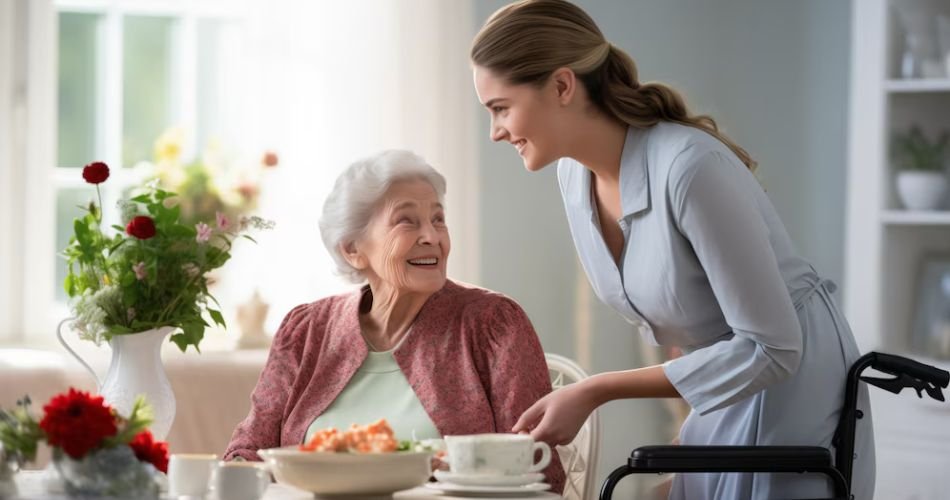As our loved ones age their needs evolve, and often the desire to remain in the comfort of their own homes grows stronger. Senior home care is a practical and compassionate solution for families seeking to maintain their elders’ independence while ensuring they receive the support they require. In simple terms, senior home care refers to a broad range of services provided in a senior’s own home. These services can include assistance with daily living activities, medical support, companionship, and more. With an aging population and increasing awareness about aging in place, home care has become more relevant than ever. It not only brings peace of mind to families but also promotes dignity and emotional well-being for seniors.
The Benefits of Senior Home Care
One of the greatest benefits of senior home care is that it allows older adults to age in a familiar environment. There’s something inherently comforting about sleeping in your own bed, making your own meals, or sitting on your favorite porch swing. This familiarity can significantly reduce stress and anxiety, especially for seniors dealing with memory loss or cognitive challenges. Home care also provides tailored, one-on-one attention that’s often not possible in institutional settings like nursing homes. Care plans are personalized based on individual health conditions, preferences, and routines, ensuring that seniors receive the exact support they need.
Another major advantage is the ability to retain a sense of independence. While caregivers assist with tasks that have become difficult—like bathing, meal preparation, or medication management—seniors are still encouraged to do what they can on their own. This balance helps maintain their confidence and reduces feelings of helplessness. Financially speaking, senior home care can be a more cost-effective option compared to full-time residential care facilities. Because you can choose the frequency and duration of visits, families have greater control over budgeting care services.
Types of Senior Home Care Services
Senior home care isn’t one-size-fits-all—it’s a spectrum of services that can be customized based on needs. Personal care assistance is one of the most common forms, helping seniors with hygiene tasks, dressing, toileting, and mobility. For those with medical conditions that require professional attention, skilled nursing care is available. These services are provided by licensed nurses and include managing medications, administering injections, wound care, and monitoring vital signs.
In addition to physical support, many seniors benefit from companionship services. These caregivers spend time with the elderly—engaging in conversation, playing games, or even accompanying them on walks or errands. It’s a critical form of care for seniors who live alone and are at risk of social isolation. For individuals dealing with Alzheimer’s or other forms of dementia, specialized memory care is also an option. Caregivers trained in cognitive care create structured routines and activities that stimulate memory and help manage behavioral symptoms. Physical therapy and rehabilitation services are another growing area of home care, supporting seniors in regaining strength and mobility after surgery, injury, or illness—all without leaving the comfort of their home.
Choosing the Right Senior Home Care Provider
Finding the right home care provider can be overwhelming, but the process becomes more manageable when approached systematically. First, assess the specific needs of your loved one. Do they need help with basic daily tasks or require more advanced medical attention? Are they looking for companionship, or is safety the top priority? Once you have a clear understanding, start researching providers who specialize in those areas. It’s crucial to check for proper licensing, insurance, and experience. A reputable provider should willingly offer background checks, references, and an in-home consultation.
When speaking with potential agencies or caregivers, ask detailed questions: What training do caregivers receive? How are they supervised? What happens in case of an emergency? A reliable agency will be transparent about their services, policies, and contingency plans. You should also gauge how flexible their care plans are, and whether they’re willing to adjust schedules or services as needs change. Lastly, make sure the provider is a good match personality-wise. Compassion and empathy are just as important as technical skills when it comes to elder care.
Understanding the Financial Side of Home Care
One of the most common concerns about senior home care is the cost. The good news is, it’s often more flexible than people expect. In many cases, part-time or as-needed care is sufficient, which significantly reduces expenses compared to 24/7 residential care. Rates vary by region and service type, but generally, home care ranges from $20 to $40 per hour. Skilled nursing is more expensive but is billed by service and frequency rather than as a full-time rate.
Insurance plays a role, too. Medicare might cover some aspects of short-term medical home care if the senior meets specific criteria. Medicaid programs in many states also offer home and community-based services (HCBS) waivers to help with costs. Long-term care insurance policies often cover a portion of in-home care services, so it’s worth reviewing existing policies. Veterans may also qualify for Aid and Attendance benefits that cover in-home care. Local non-profits and senior service organizations sometimes offer financial assistance or sliding scale pricing, so don’t overlook community resources.
The Family’s Role in Home Care
Even with professional help, the family remains central to a senior’s well-being. Beyond logistical involvement, the emotional bond and sense of continuity that family brings can’t be replicated by hired caregivers. Many families take on the role of care coordinator—overseeing schedules, medications, and monitoring the quality of services provided. Frequent visits and check-ins ensure that the senior home care condition is being accurately monitored and that their voice is being heard, Balancing caregiving with other responsibilities can be tough. That’s where respite care comes in—a temporary relief service allowing family members to rest and recharge. Maintaining your own physical and mental health isn’t selfish—it’s essential. A burned-out caregiver can’t provide the quality of support their loved one deserves.
Common Challenges in Senior Home Care
Despite its advantages, senior home care comes with challenges. Seniors often have chronic health conditions like arthritis, diabetes, or heart disease, which require consistent monitoring and specialized care. Ensuring that care remains coordinated between doctors, caregivers, and family can be complex. Another challenge is resistance. Seniors may fear losing their independence or feel uncomfortable accepting help, especially from strangers. Patience and gradual integration of care services can help ease this transition, Caregiver burnout is another real and pressing issue. Whether family members or professionals, caregivers often neglect their own needs, leading to fatigue, stress, and health issues. Creating a support system, using respite care, and communicating openly about the emotional toll of caregiving are essential steps toward sustainable care.
The Rise of Technology in Home Care
Technology has revolutionized how we support aging at home. Smart home devices like fall detection sensors, voice-activated assistants, and automated medication dispensers enhance safety and ease of living. Remote monitoring tools allow doctors and family members to keep tabs on a senior’s vital signs and activities without constant physical presence, Telehealth has become especially popular, enabling seniors to consult healthcare providers via video calls. This is a game-changer for those with mobility issues or living in remote areas. Meanwhile, mobile apps streamline the caregiving process by allowing family members to coordinate schedules, track medication times, and communicate with professional caregivers—all in real time.
Legal and Ethical Considerations
Navigating the legal side of elder care is just as important as the practical aspects. Seniors have rights that must be respected—privacy, autonomy, and the right to make informed decisions. It’s wise to set up legal documents early, including a power of attorney (POA) for financial and healthcare matters, a living will, and a healthcare proxy. These documents ensure that the senior’s wishes are honored, even if they become unable to speak for themselves, Also, ethical care means treating seniors with dignity, respecting cultural differences, and involving them in decision-making. The goal should always be to support, not to control.
Future Trends in Senior Home Care
The future of senior home care looks innovative and promising. We’re seeing the integration of AI-driven caregiving assistants that can remind seniors to take medications or alert emergency services if something’s wrong. Wearable technology like smartwatches that track heart rate, steps, and sleep quality are being used more frequently. Even robotic caregivers, still in their early stages, are being tested for companionship and simple tasks, Most importantly, there is a shift toward holistic care models that address physical, emotional, and psychological needs equally. Preventive care, wellness coaching, and even virtual social groups are becoming part of the home care experience.
Conclusion
Senior home care is more than just a service, it’s a lifeline for families seeking a balance between independence and safety for their aging loved ones. From personalized attention to emotional support, the benefits are abundant. Choosing the right care setup involves planning, research, and open communication, but the result is often a happier, healthier, and more dignified aging experience. Whether you’re already caring for someone or just starting to explore options, remember, home care doesn’t mean going it alone—it means getting the right help, right where it matters most.




